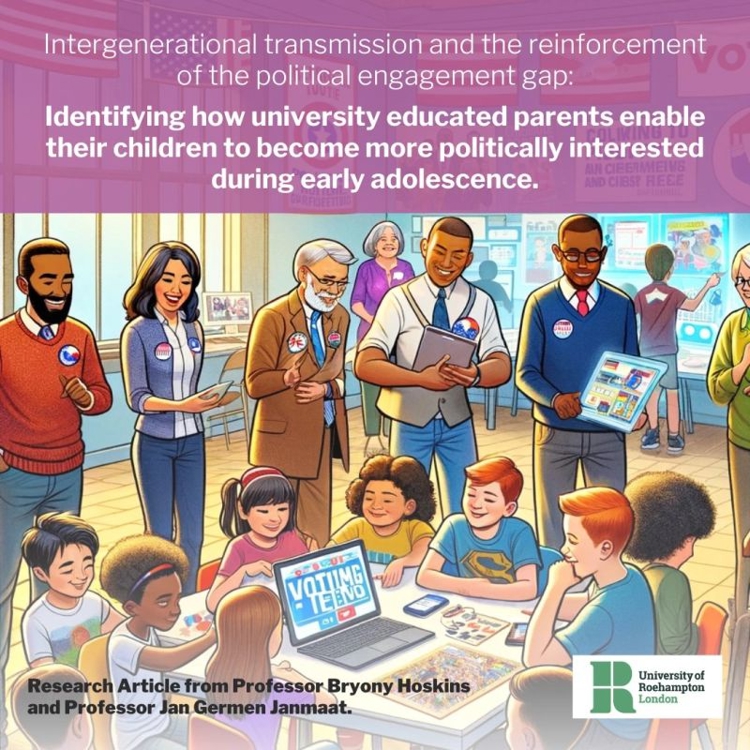A study by the University of Roehampton has found that university-educated parents adopt behaviours that lead their children to become significantly more engaged with politics between the ages of 10 and 16 compared to their peers.
The research, carried out by Professor Bryony Hoskins, Chair of Comparative Social Science at the University of Roehampton, and Professor Jan Germen Janmatt, Professor of Political Socialsation at UCL and funded by the Nuffield Foundation shows that these children will understand and engage more with politics as they get older and addressing this inequality could be key in boosting turnout at elections.

Analysis from two national longitudinal surveys*, showed that university-educated parents ensured their children were engaged with politics by trips to museums and art galleries and encouraged to take part in debating clubs, classroom discussions and mock elections at school.
Professor Bryony Hoskins said: “Schools unintentionally give children from higher educated families more opportunities to become political engaged citizens than children from parents without degrees."
By organising more school trips to cultural venues, ensuring that all social groups are involved in political activities in school, and providing teachers with the necessary training to foster civic engagement among students, we can reduce the inequalities between the children of university educated and non-university educated parents, strengthening our democracy.”
Josh Hillman, Director of Education at the Nuffield Foundation said: “This research shows important trends in the civic and political engagement of young people both over time and between those of different social backgrounds, why it matters for democracy, and suggests ideas to tackle the political participation divide.”
The Nuffield Foundation is an independent charitable trust with a mission to advance social well-being. It funds research that informs social policy, primarily in Education, Welfare, and Justice.
*The Citizenship Education Longitudinal Study and the Understanding Society Youth Survey Young people - Understanding Society
